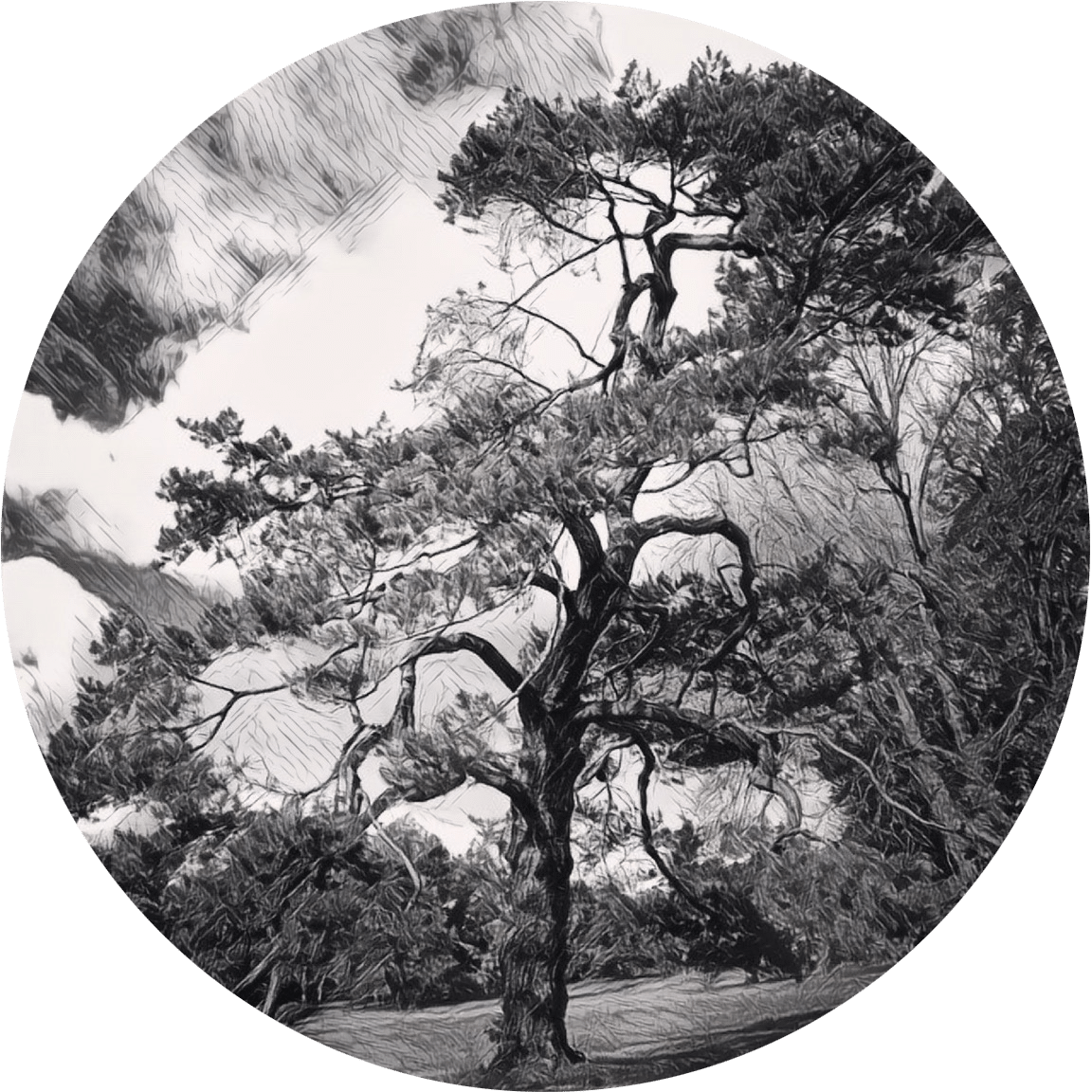In this installment of 5 On, retired journalist Rick Shefchik, author of the novels Amen Corner, Green Monster, Frozen Tundra, and Rather See You Dead, talks about the everywriter fantasy of leaving a job to write novels, shares his mystery/thriller-writing technique, and discusses his choice of genres. He also explains why he crossed from traditional to self-publishing and why publishing with a small, independent press, as he did with one of his novels, did not prove to be an advantageous alternative to self-publishing.
.
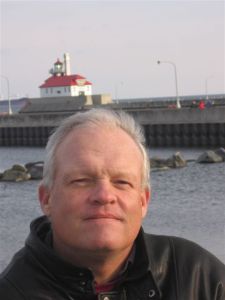 .Rick Shefchik was born and raised in Duluth, Minnesota, graduated from Dartmouth College and began his journalism career at the Duluth News-Tribune. He then spent 26 years at the St. Paul Pioneer Press as a media critic, feature writer/columnist, enterprise reporter and sportswriter. He left the Pioneer Press in December 2006 to pursue a career as a novelist and freelance writer. He lives in Stillwater, Minnesota, with his wife, Barbara, daughter Claire and son David. He’s a lifelong golfer and plays guitar with Yesterday’s News, an oldies band he formed with some of his fellow journalists.
.Rick Shefchik was born and raised in Duluth, Minnesota, graduated from Dartmouth College and began his journalism career at the Duluth News-Tribune. He then spent 26 years at the St. Paul Pioneer Press as a media critic, feature writer/columnist, enterprise reporter and sportswriter. He left the Pioneer Press in December 2006 to pursue a career as a novelist and freelance writer. He lives in Stillwater, Minnesota, with his wife, Barbara, daughter Claire and son David. He’s a lifelong golfer and plays guitar with Yesterday’s News, an oldies band he formed with some of his fellow journalists.
Rick’s latest book, Everybody’s Heard about the Bird: The True Story of 1960s Rock and Roll in Minnesota, published in Nov. 2015.
..
5 ON WRITING
.
Q: In your latest novel, Rather See You Dead, “someone begins mailing [singer Jessie Bridges] a series of cryptic mash-ups of song lyrics by Elvis Presley and the Beatles.” Where did that idea come from?
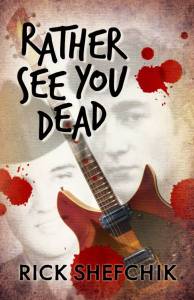 R.S. I have two great interests: sports and music. I had already written three modest-selling sports thrillers, and decided to try a music-based thriller. I’m also very interested in history, and I thought the reading public might be interested in a Da Vinci Code-style thriller based on recent pop music history.
R.S. I have two great interests: sports and music. I had already written three modest-selling sports thrillers, and decided to try a music-based thriller. I’m also very interested in history, and I thought the reading public might be interested in a Da Vinci Code-style thriller based on recent pop music history.
The two biggest acts in pop music in my lifetime have been Elvis and the Beatles. I have read many biographies of both; I knew that the Beatles – and in particular, John Lennon – idolized Elvis. It occurred to me that there was a possibility the Beatles might have played their first German bar gigs while Elvis was still serving in the U.S. Army in Germany, which would have presented a natural opportunity to bring them together in a work of fiction. Turns out Elvis left in March 1960, while the Beatles did not go to Germany until August 1960. But their relative proximity suggested a plot: John Lennon meets a woman in Liverpool who promises him she can introduce him to Elvis Presley, if he is willing to go to Paris while Elvis is there on a one-week leave.
The plot naturally evolved from both men being involved with the same woman. I brought it into the present with the women’s daughter appearing on an “American Idol”-styled talent show, where she is recognized by people who have spent decades trying to keep her from her mother and from the knowledge of who her father was.
Is there a book without which you might not have been inspired in the same way to be a thriller writer?
I read most of the Raymond Chandler novels years ago, and was a big fan of Robert Parker’s Spenser novels, so I already had a feel for detective fiction. If any one book stands out, however, it might be The Firm by John Grisham – though I was a bit disappointed by the ending, I was amazed at how easily I was swept along for the first several hundred pages.
How do you plot your mysteries, and do you find yourself having to go back through to drop subtle clues after you’ve reached the final page?
I write a bare-bones outline before I start to write a mystery; I know who the killer is, I know why he will go undetected for most of the story, and I have a pretty good idea of the final scene I’m working toward. Rather than inserting clues after I’ve written the manuscript, however, I find the reverse is always true: I will have inserted seemingly innocuous details into the story as I’m writing without having specific ideas of how they might become important, and then find later in the plot that they are perfect hinges upon which to turn the story in interesting, and in some cases, unexpected directions.
I’ve had writers tell me they’ve got every chapter scripted out before they write the first word of their novel. I can’t imagine writing that way; the story unfolds much more naturally if I make use of ideas that come to me as I’m writing.
You made the dream leap: you left your job to become a novelist. What did you envision when you imagined a life as a novelist, and how did the reality match up? Were there any surprises?
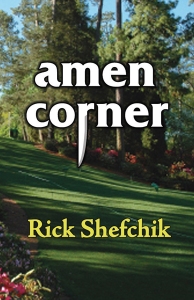 I wanted to write books since I was about 10 years old, and I grew up to achieve my childhood dream. When I left my newspaper job at age 54, I had hoped to earn as an author at least approximately what I had earned as a reporter, but that did not prove to be the case. It would be easy to say that the surprise was that I didn’t sell as many books as I hoped to. All but a small handful of writers end up dealing with that reality.
I wanted to write books since I was about 10 years old, and I grew up to achieve my childhood dream. When I left my newspaper job at age 54, I had hoped to earn as an author at least approximately what I had earned as a reporter, but that did not prove to be the case. It would be easy to say that the surprise was that I didn’t sell as many books as I hoped to. All but a small handful of writers end up dealing with that reality.
I have supplemented my income with freelance magazine and newspaper work, but all my writing income combined would not have been enough had it not been for a Knight-Ridder newspaper pension I began collecting at age 55, and my wife’s full-time job (with excellent benefits) at the State of Minnesota’s Department of Health. My recent work in non-fiction — a book on Minnesota golf history, three private golf club anniversary history books and a forthcoming book about Minnesota rock ‘n’ roll bands in the 1960s — have been a big boost to my income.
What really surprises me is how content I am to have such modest sales figures. I’m proud of every book I’ve written, I’ve become a better writer, and I have enough money that I can pay my mortgage. Financial success would be great, but I’ve found it doesn’t dictate my satisfaction.
Why thrillers?
I don’t have much interest in “literary” fiction. I like stories that are plot-driven. I also want to write for the widest audience possible, and thrillers are generally the top-selling works of fiction.
.
5 ON PUBLISHING
.
Your other books are published by presses (Poisoned Pen and North Star), but Rather See You Dead is self-published. What made you choose that avenue?
The downturn in the publishing business. My first novel, Amen Corner, did relatively well, and my publisher at Poisoned Press loved my second Sam Skarda novel, Green Monster. She expected me to move on to a bigger publishing house, and so did I. I got an agent for my third Skarda novel, Frozen Tundra, who was very enthusiastic about it, but this was the fall of 2008, and the publishing business was taking a major hit from the weak economy. I don’t know for sure if that’s why my agent couldn’t sell Frozen Tundra – the other issue was that new publishers apparently aren’t eager to pick up a series in mid-stream. So I took the book back to Poisoned Pen, and my publisher regretfully turned it down, saying it was a thriller, rather than a mystery.
I suspect the economy had more to do with it than the slight bend in the genre, but no matter what the reason, I was forced to go to a smaller, rather than larger, publisher to get Frozen Tundra in print. North Star simply wasn’t capable of selling many books; they didn’t even send out review copies to the trades, much less newspapers and other possible reviewers. All lesser-known authors understand that they bear the main burden of promoting their own books, but at North Star I got no help whatsoever.
When I wrote Rather See You Dead, I sent queries to dozens of agents – including my original agent – but none of them seemed to respond to the book’s concept. Again, I don’t think they saw any hope of selling a book by an unknown author in that economic climate. I decided rather than go back to North Star, I’d try e-publishing. At least this way I’d make most of the profits after doing all the work. I made as much money from the sale of each $2.99 e-book as I did from each sale of a $24.95 hardcover. The numbers are not impressive, but overall I made about the same amount of money from Rather See You Dead as Frozen Tundra. I still would like to get Rather See You Dead into print; I plan to submit it to my editors at the University of Minnesota Press, for whom I’ve written two works of non-fiction in the past three years.
Have you noticed a difference between small press publishing and self-publishing in how successfully your book reaches readers?
Seems about the same. North Star is so small that I really have more faith in the reach of my own promotional efforts with an e-book. A slightly larger small press, on the other hand, would probably do just as well, if not better, reaching readers.
What do you most enjoy and what proves most difficult for you when marketing your own work?
I don’t enjoy beating my own chest – I tend to avoid self-promoters as unseemly – but I knew when I signed my first contract that I’d simply have to become more assertive about marketing myself and convincing people I’ve got something they want. I do like to meet people, however. It’s a great joy to have someone tell me they enjoy my work, or discuss the books I’ve written. I’ve rarely had an unpleasant time meeting with readers; they are almost always curious, intelligent people with whom it’s easy to talk about our mutual interests. That’s particularly true with my non-fiction works. If somebody buys my golf history book, I know this is a person I could talk to for hours, if not days.
How did your revision process change, if at all, when you went from having a publisher to self-publishing? When you were with Poisoned Pen or North Star, did you write and revise on your own before submitting it to your editor, or did you seek feedback from careful and respected readers as you revised? And what was the process like once you went independent?
I have always asked a good friend of mine at the St. Paul Pioneer Press to copy-edit my manuscripts, and I ask my daughter Claire — who has an MFA in fiction and is about to publish her first book — to do a first read for content and believably. That changed slightly with Rather See You Dead, because my editor friend was not able to copy-edit for personal reasons. This led to more typos in the published version, most of which probably would have been caught had it gone through the traditional publishing process. I learned that I need another set of eyes on the finished manuscript, and I need to read even more carefully before submitting.
On the other hand, my second novel, Green Monster, contained several errors that were introduced during the editing process after I sent it to the publisher. A perfect text is hard to achieve.
How much attention do you pay to things like reviews of your books or to your Amazon sales ranking?
I pay a lot of attention to both. I think writers are lucky whenever we receive feedback on our work – we’re writing for other people to read and react, so it doesn’t make sense to downplay their reaction. I’ve been fortunate to receive very few negative reviews. Good or bad, however, you have to consider the source. Sometimes your friends and fans are more generous than necessary, and sometimes your detractors just aren’t the right audience for your work. Because it’s the only easily-accessible metric, your Amazon sales ranking is hard not to obsess over when your book is new. After a book has been out for a while, however, I stop checking how it’s doing on Amazon.
Thank you, Rick.
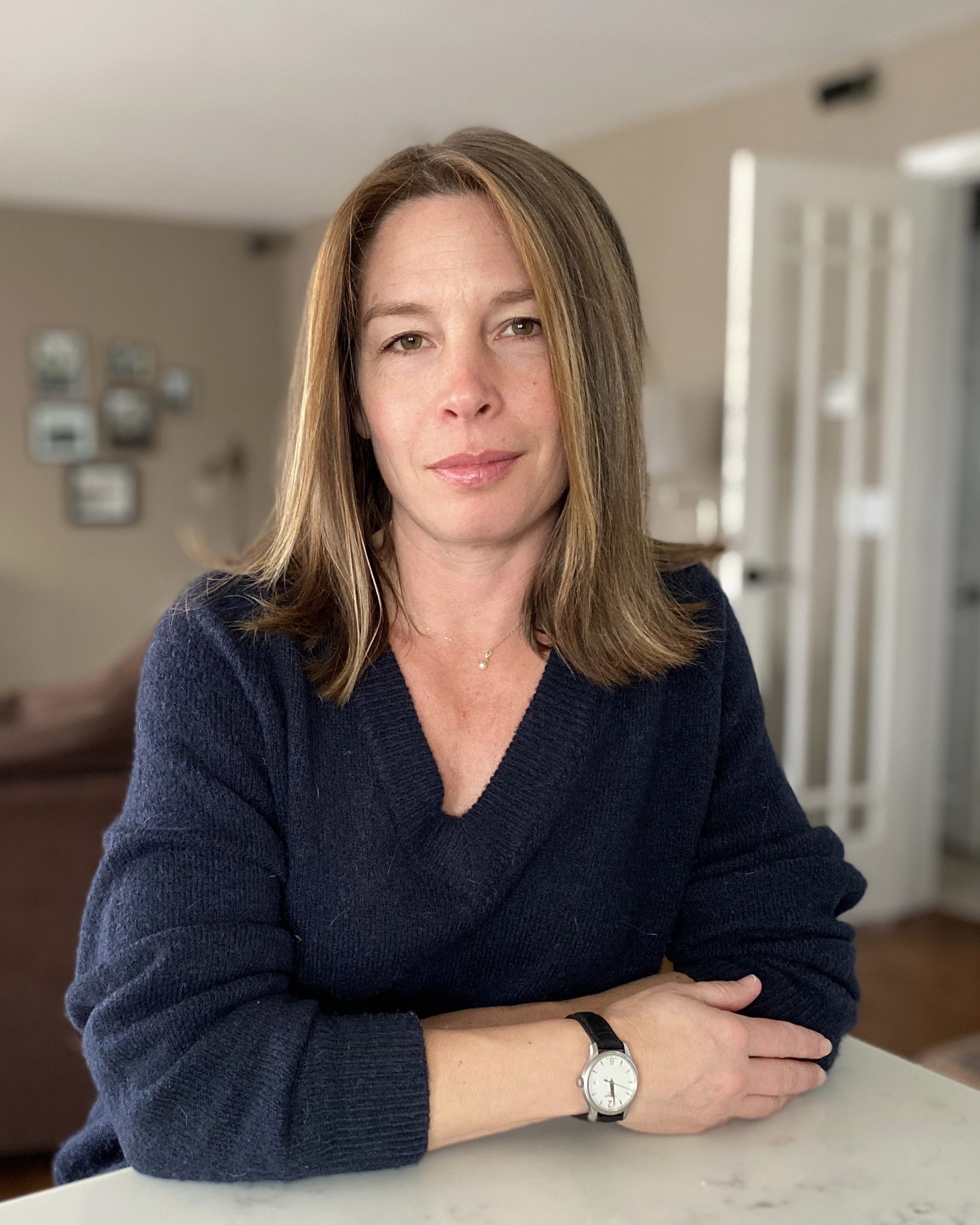
Kristen Tsetsi is the author of the post-Roe v. Wade novel The Age of the Child, called “scathing social commentary” and “a novel for right now.” She is also the author of the novels The Year of Dan Palace and Pretty Much True (studied in Dr. Owen W. Gilman, Jr.’s The Hell of War Comes Home: Imaginative Texts from the Conflicts in Afghanistan and Iraq). Kristen’s interview series at JaneFriedman.com offers behind-the-scenes insights into all things writing and publishing.


